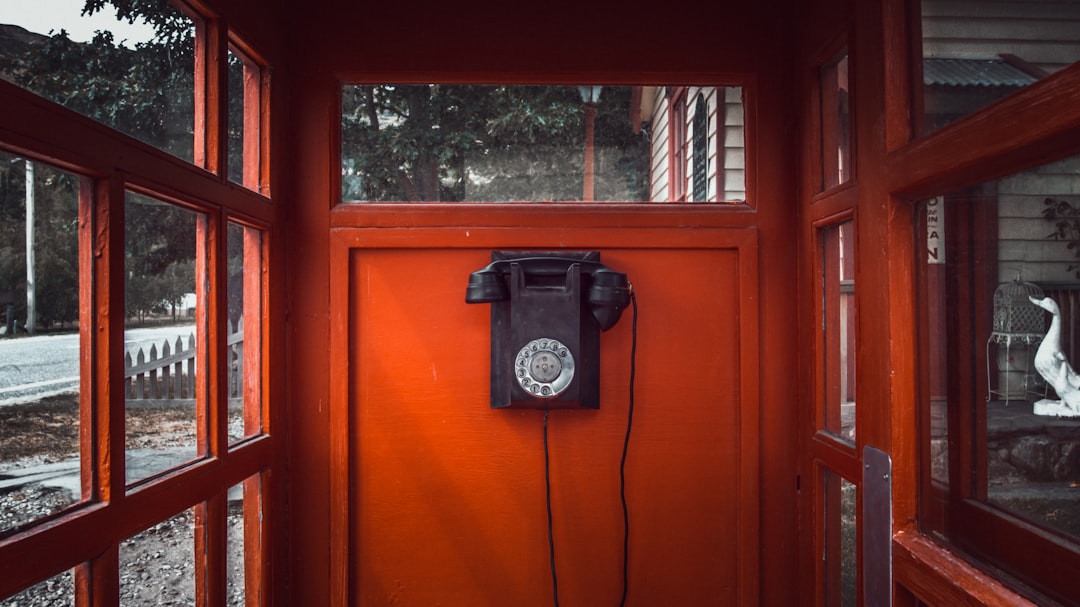West Virginia residents are protected from unsolicited phone calls, including robocalls and those from debt collectors, by state laws like the Telemarketing Act (TCPA) and Fair Debt Collection Practices Act (FDCPA). If you've received unauthorized automated calls or been targeted by debt collectors using incorrect identification, consult a specialized Robocall Lawyer WV or Debt Collector Calling Wrong Number Law Firm WV. These professionals can help understand your rights, draft cease-and-desist letters, file complaints, and pursue compensation for privacy breaches. Key terms to consider include: Robocall Lawyer WV, robocall attorney WV, debt collector calling wrong number law firm WV, and more.
“In West Virginia, autodialed phone calls without prior consent are regulated by state telemarketing laws. This article guides consumers through the complex landscape of unwanted robocalls, particularly from debt collectors. We explore what constitutes an unacceptable call, consumer rights, and legal avenues for recourse in cases of wrong number robocalls.
For those seeking representation, understanding your options is crucial. Discover how a robocall lawyer WV or debt collector calling wrong number law firm WV can assist in navigating these issues, ensuring justice and protection against intrusive telemarketing practices.”
- Understanding West Virginia's Telemarketing Laws
- What Constitutes an Unwanted Robocall in WV?
- Rights of Consumers: When to Take Action Against Debt Collectors
- Legal Recourse for Wrong Number Robocalls in West Virginia
- Navigating the Process: Finding a Robocall Lawyer in WV
- Strategies to Prevent and Stop Robocalls Effectively
- Case Studies: Successful Claims Against Debt Collector Robocalls
Understanding West Virginia's Telemarketing Laws
In West Virginia, telemarketing practices are regulated by state laws designed to protect consumers from unsolicited phone calls, often known as robocalls. These regulations are in place to ensure that businesses obtain proper consent before initiating automated dialer campaigns. The West Virginia Division of Labor and Industry oversees these rules, ensuring compliance with the Telemarketing Act and other relevant legislation.
If a debt collector or telemarketing company makes robocalls without explicit permission, particularly when targeting individuals who have not given consent, they may be violating local laws. Consumers in WV who experience repeated unwanted calls, including those from debt collectors using automated dialers for incorrect numbers, can seek legal advice from a qualified robocall lawyer WV or debt collector calling wrong number law firm WV. These legal professionals specialize in navigating the state’s telemarketing laws and can provide guidance on protecting one’s rights.
What Constitutes an Unwanted Robocall in WV?
In West Virginia, a robocall is considered unwanted and potentially illegal if it is made without the explicit permission or prior consent of the recipient. This includes automated phone calls from debt collectors that incorrectly identify the caller’s purpose or target the wrong number. The Telephone Consumer Protection Act (TCPA) protects consumers from such unsolicited telemarketing calls, including those from debt collection agencies. If a robocall lawyer WV residents contact has violated these regulations, a robust legal response is warranted.
A Robocall Lawyer WV or debt collector calling wrong number law firm WV can provide guidance and advocate for affected individuals. They can help navigate the complexities of TCPA litigation, ensuring that those who have received unwanted robocalls, especially from debt collectors targeting the wrong numbers, understand their rights and options. These attorneys specialize in representing clients seeking compensation for such violations, often resulting from automated phone systems designed to generate high volumes of calls, regardless of the recipient’s interest or identity.
Rights of Consumers: When to Take Action Against Debt Collectors
In West Virginia, consumers have rights when it comes to unsolicited phone calls, particularly those from debt collectors or robocallers. If you’ve been subjected to repeated automated or prerecorded calls (robocalls) regarding a debt that was not incurred by you, or if a debt collector has contacted you using abusive, threatening, or harassing tactics, you have options. The Fair Debt Collection Practices Act (FDCPA) protects consumers from these practices and provides guidelines for how debt collectors must conduct themselves during communications.
Taking action against a debt collector who is making unauthorized robocalls or calling the wrong number can be done through legal channels. A robocall lawyer WV or debt collector calling wrong number law firm WV can help you understand your rights and take appropriate measures. These legal professionals are equipped to handle cases involving abusive debt collection practices, ensuring that your rights as a consumer are respected. If you’ve received such calls, consider documenting the details, including dates, times, and any specific statements made by the callers, as this information will be valuable in pursuing legal action if necessary.
Legal Recourse for Wrong Number Robocalls in West Virginia
In West Virginia, legal protections are in place to combat unwanted and unauthorized robocalls, including those from debt collectors that dial the wrong numbers. If you’ve received a robocall from a debt collector or any automated dialing system without your prior consent, you have options. A robocall lawyer WV or robocall attorney WV can help navigate the legal landscape and assert your rights under state and federal laws. These laws prohibit automatic telephone dialing systems from calling individuals who have not given explicit permission, known as “do-not-call” regulations.
If you believe you’ve been a victim of such unauthorized calls, especially if they’ve caused distress or led to a breach of privacy, consulting a debt collector calling wrong number law firm WV or robocall lawyers WV is advisable. These legal professionals can guide you on taking action against the offending entity, whether it’s a debt collection agency or a telemarketing company. They can help draft cease-and-desist letters, file complaints with regulatory bodies, and even pursue legal actions to secure compensation for any harm incurred due to these unsolicited calls.
Navigating the Process: Finding a Robocall Lawyer in WV
Navigating the process of challenging autodialer use without explicit permission in West Virginia begins with securing legal counsel from a qualified Robocall Lawyer WV. With the prevalence of robocalls, including those from debt collectors targeting the wrong numbers, it’s crucial to have an attorney who understands the complexities of this issue. In West Virginia, individuals who have experienced unwanted or misleading autodialer calls can seek relief through legal channels.
Finding a robocall attorney WV specializing in debt collector calling wrong number cases is essential. These lawyers are familiar with state laws and regulations regarding telemarketing practices. They can help clients file complaints, send cease-and-desist letters, and even pursue legal action if necessary. Several law firms across the state offer their services for such matters, focusing on protecting consumer rights and ensuring compliance with privacy laws.
Strategies to Prevent and Stop Robocalls Effectively
In West Virginia, preventing and stopping robocalls requires a multi-pronged approach. One effective strategy is to register your phone number with the National Do Not Call Registry. This federal list restricts telemarketers from calling numbers on it, though it doesn’t typically block all robocalls as some calls operate through automated systems not covered by this registry. Another powerful tool is to consult a robocall lawyer WV or robocall attorney WV. These legal professionals specialize in debt collector calling wrong number cases and can guide you on the best course of action, which might involve sending cease and desist letters or filing legal complaints.
Additionally, using call-blocking apps and tools designed to identify and block robocalls can be beneficial. Many such applications learn from user reports and continually update their databases to recognize new scams. Also, staying informed about common robocall scams and sharing that knowledge with friends and family can help create a collective defense against these nuisance calls. For businesses dealing with debt collector calling wrong numbers, consulting a debt collector calling wrong number law firm WV or robocall lawyers WV is crucial to ensuring compliance with consumer protection laws and protecting their reputation.
Case Studies: Successful Claims Against Debt Collector Robocalls
In recent years, numerous individuals in West Virginia have found themselves on the receiving end of unwanted robocalls from debt collectors, often reaching out to numbers they hadn’t intended to contact. These automated calls, while frustrating and intrusive, have prompted several successful legal actions against these debt collection agencies. One notable case involves a consumer who received repeated robocalls despite not having any outstanding debts. With the help of a robocall lawyer WV, they filed a complaint, arguing that the calls violated their privacy rights under state laws. The court ruled in favor of the plaintiff, awarding damages and sending a clear message to debt collectors about the legality of such practices.
Another compelling example is a law firm in WV that took on a major debt collection company on behalf of clients who received calls advertising debt relief services, even though they were not in default. The robocall attorneys WV successfully argued that these calls amounted to illegal telemarketing under the Telephone Consumer Protection Act (TCPA). The resulting settlement set a precedent, demonstrating that consumers have recourse when their rights are infringed upon by aggressive debt collector tactics. These cases illustrate the power of legal action against robocalls and serve as a reminder for debt collectors to adhere to strict regulations regarding consumer communication.






